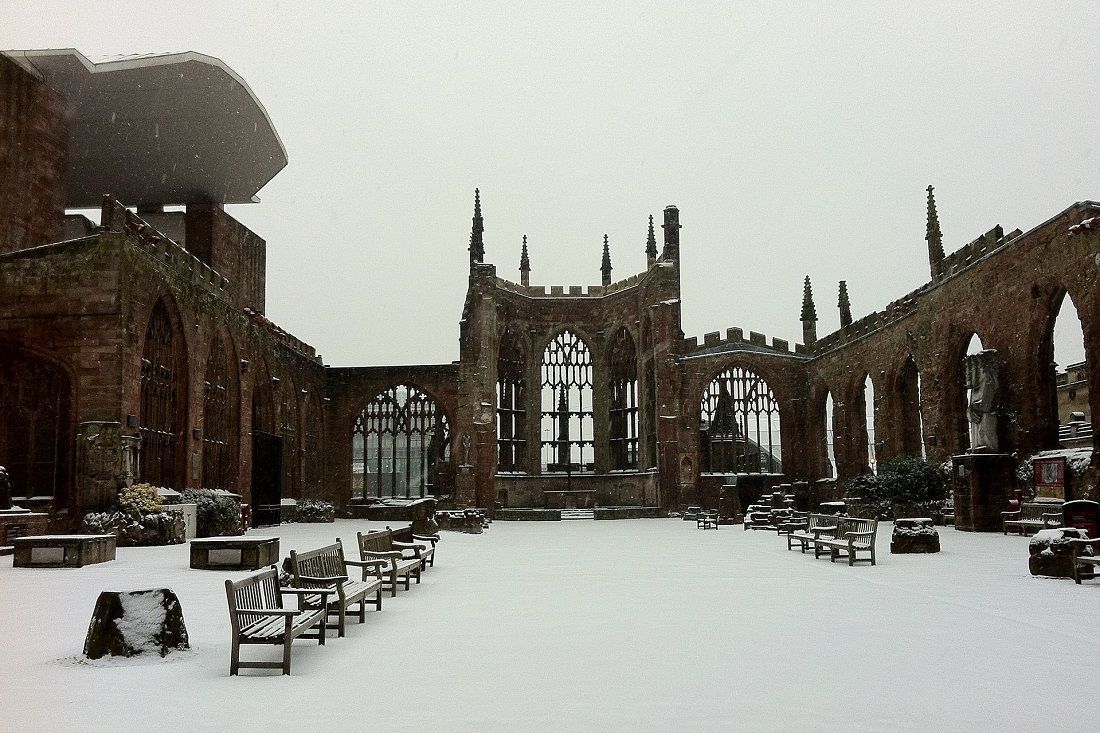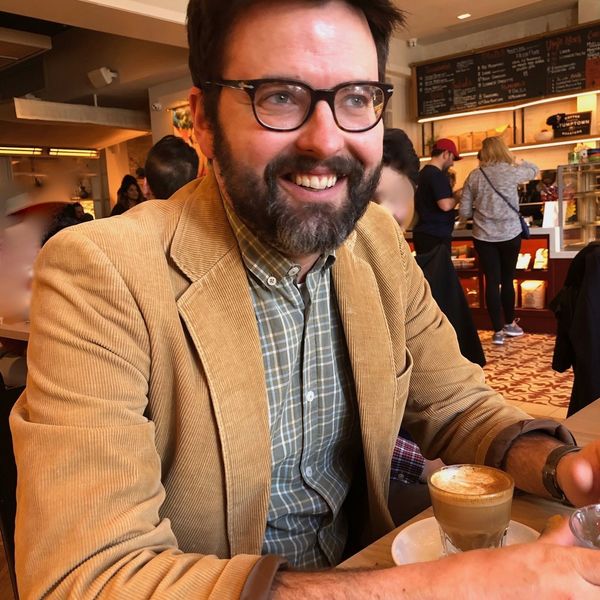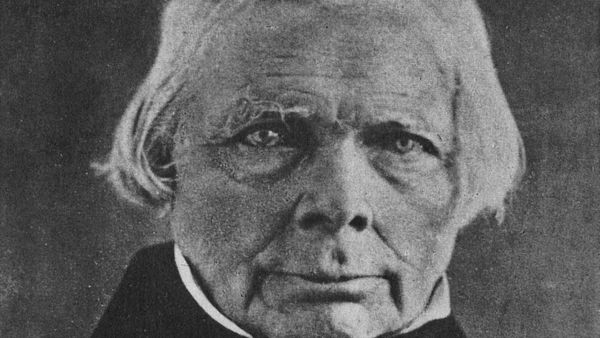History can be told as the story of what happened, but it can also be narrated as the story of what could have been but was not. We look to history, in part, to see not only what is now but what may be. This is in part the motivating force behind various genealogies whether they be Michel Foucault’s or Alasdair MacIntyre’s. If the past is not what we have been told, perhaps the future may be different from what we have been told it will be. There are different approaches to this task. Such genealogical work has been explored here at Church Life and forms the core of the mission at Genealogies of Modernity Project, an interdisciplinary project exploring narratives of modernity. While Christian genealogies ultimately necessitate different relations to time and history than Foucauldian/Nietzschean genealogies, they have in common a sense of contingency and so openness to new possibilities.
One approach to genealogy is to pin-point a moment when historical possibilities opened before they crystalized into certain actualities. Alan Jacobs in The Year of the Lord 1943: Christian Humanism in an Age of Crisis steps back in time to 1943 to show such a moment in history. His work looks to a moment when a new future could have begun; perhaps he provides wisdom for our own attempts to change out times. In the ruins of Europe, a new future seemed possible. Jacobs looks to a handful of Christian writers, who in the turning tide of the war, sought to forge a new Christian culture in the ruins of a secular world.
Jacobs does not present his reader with one clear story but weaves together many stories. In so doing, he gradually provides a chronicle of the genesis of our time or, more accurately, a chronicle of a genesis that stagnated. The successes of these great writers did not arrest secular modernity. Importantly, as the book develops, the reader gradually realizes that the title’s “age of crisis” is not really 1943 but 2019. The crisis for Christian humanists in the West is: what are Christians, as member of diminishing churches, to do in 2019? Jacobs describes our post-Christian Western world by looking back to the last viable attempt to restore a Western Christendom. Those humanists’ attempts failed, but Jacobs seeks to find lessons for humanists in our own crisis. He ultimately leaves us with only ironic hopes and small victories and yet we find in this text wisdom for a diminished Church as we still cling to our hope in the God of new beginnings
Writing to Arrest the Times
Jacobs recounts a lost hope by looking to five figures writing in 1943: C.S. Lewis, T.S. Eliot, Jacques Maritain, Simone Weil, and W.H. Auden. They had sought a radical renewal by means of a return to the roots of an ever new and ever untried future: a Christian future. Jacobs allows the plural vision they shared to show ways that a Christian future could have opened but did not. The book lives in this “could have but did not” space, seeing in them futures that never came about.
In Jacques Maritain—the most and least successful of the lot—we find a Thomist unafraid of the modern world but also deeply critical of it. Jacobs writes of Maritain’s view that the “Thomistic method could only be altered for the worse, never for the better. The neo-Thomist account of modernity is therefore necessarily a declinist narrative” (41). But Maritain thought this narrative could ground a new Thomistic synthesis; his genealogy is meant to be the genesis of a new story, which could convert modernity without rejecting it. Thus, Maritain helped write some of the founding texts of the Christian Democratic Western world. But in so doing, as Jacobs intimates, Maritain left us with a Christian Democratic world increasingly lacking in Christianity.
If Maritain succeeded in influencing UN declarations without changing hearts, C.S. Lewis succeeded in enchanting imaginations. He was broadcast all over the world and published wildly successful books because he was committed to being an educator. To educate for Lewis is to cultivate a shift in attention to a truth that is “further up and further in.” In this shifting from hither to yon, we unexpectedly find we are better dwellers in this time. If better Christians, we may find ourselves better Brits: “‘Christian Britain’ will only become possible if Lewis’s listeners become seriously and primarily Christian—if their national identity, even in time of war, plays a secondary role” (107). Lewis’s shift of loyalty failed as loyalty itself failed in a post-war Britain. Lewis’s popular enchantment proved ephemeral in a disenchanted world where winter never brings Christmas, because it replaces Christmas with the “Holidays.”
In contrast, Jacobs finds in Eliot a vision that was too elitist and distant from the world of radios and popular novels. Eliot forged a vision that may tempt people like Jacobs (and me) but which seems unlikely for those not steeped in Greek and Latin. Yet, Eliot’s conservatism remains grounded. For him, we need to dwell in the roots of things and in a place beyond gravity. Jacobs writes, “Eliot knows that the development of postwar society will not work to sustain and nourish the local things he loves . . . One of the most important social functions of poetry is to bring the local and immediate to our attention and attract to it our love” (187). Poets, like saints, are called “to apprehend the point of the intersection of the timeless with time” (Eliot, Four Quartets). Eliot knew that the local and the poetic were being replaced by interstate highways and television. In the process, the timeless was being forgotten. Modernity for Eliot entailed this conjunction of the loss of time, in loss of local traditions, and the loss of the timeless. We cannot avoid losing one if we lose the other.
If Eliot’s vision of an erudite localism was fading in the era of marketing, Weil’s vision is perhaps marked by its essential impossibility. Weil knew that Christianity had always been a failure, unable to balance the pull of gravity against the attraction of grace. She wrote for those outside the Church, because the Church is the only inside we should love. For her, this was both its strength and its earthly temptation. Jacobs describes Weil’s vocation to: “remain always outside the household of the Church while nevertheless seeking with all her heart and soul what is to be found within” (112). Weil’s impossible vision led her to an impossible life. She lived on a solidarity diet that was also a starvation diet, and so died on behalf of her comrades in France. How could it be that she would be our guide to living in the late-capitalist world?
Auden’s Tragi-Comic Vision
Where do we find ourselves in Alan Jacobs’s tale? He keeps drawing different writers in and his book gets jumbled as authors and insights tumble one after another. It is easy to lose track of who and what we are talking about. As the book carries one forward, the reader cannot help but think that these thinkers must have arrested time and drawn the world into a new Christian humanism. It is here that we find the deep-down sorrow of The Year of the Lord 1943. Jacobs tells a story of greatness, weaving together these thinkers, to show a future that never came about. Take Jacobs words at the end of his book:
[These writers] worked with astonishing energy to rescue their world for a deeply thoughtful, culturally rich Christianity, and to rescue that Christianity for their world. They put forth every effort to redeem the time. But on the sounding of the war’s last siren, they awoke and found that the problem they all had to face was “what to make of a diminished thing” (206).
Jacobs writes the story of these writers’ attempts to build a robust Christian society. In so doing he writes of their failures. All they left us is their writing and the diminished thing. Jacobs leaves us the fear that if their every effort failed, then what can ours succeed in doing?
What are we to make of their work? And what are we to do today with our own work considering theirs? None of us are Eliot or Weil. World leaders are not listening to us like they did to Maritain, nor is the BBC broadcasting us like Lewis. We are the diminished thing. If they (not yet diminished) failed, what are we to do? Perhaps, in this diminishment, it is to the fifth writer we should turn, W.H. Auden.
Auden was skeptical of a “program of Christian social renewal” in part because of his concern that it was “a massive misunderstanding of the claims of Christianity” to treat it as “a means to an end, that end being social cohesion” (81). This is the threat of conservatism for Christianity: it makes Christianity a force for social good—the city of God makes a better terrestrial city. But as Auden knew: “This is to re-enact the Constantinian error, which was to ‘profess and practice a religion of success’” (81). The crass version of this is the prosperity gospel in which Christianity will help us win so much we get bored of winning. In the richer traditions of Christianity, the question remains: what is the victory we seek?
For Auden, this victory could not be a social, cultural, or political. He challenges us to ask if we “believe that the contemplative life is the highest and most exhausting of vocations, that the church is saved by the saints?” (55). These values probably do not benefit society, but the contemplative and the saint seek a kingdom that is not of this world. Yet, for Auden in For the Time Being, they must remain at work here for we have “the time being to redeem / From insignificance.” Our victories this side of Eden are ironic ones redeemed only by the hope of Someone Else’s victory. We can only pursue this true victory by working for small victories “In the Kingdom of Anxiety” for it is only here that we can “Love Him in the World of the Flesh.” If you hope in the most ironic victory—that of the Cross—you may come to “the great city that has expected your return for years.” All we can do until then is win some and, more often, lose some, work against technocracy and nationalism, and actively wait as a service to God and to all. Ultimately, it is not social reform that matters; what matters is becoming saints.
Waiting for a Miracle to Come
Perhaps it is Auden’s sense of irony and hope that leads Jacobs to close with the message of yet another writer: the French philosopher Jacques Ellul. Jacobs sees Ellul as having been “more realistic” in choosing “the simple hope for miraculous deliverance” (206). For a Christian, this is the truest realism, for our only hope is for the continuing miraculous deliverance of the Cross, Resurrection, and Return. Still, this reader was left grasping at the end. Is our only hope, as the diminished thing, a miracle? Jacobs leaves us with the advice that we must learn from these writers and that we must be aware of the signs of the times. But what can either teach us? As the diminished thing, how are we to arrest this diminishment and maybe even grow? These writers did not arrest the time. If, as I posited in the beginning of this essay, a genealogical approach gives us a sense of what was not, but also what could be, then Jacobs seems to provide us with little in the direction forward. The past that failed seems now merely a prologue towards continued diminishing.
Perhaps then, this diminishment provides us the spiritual lessons we need. Genealogical accounts are meant to remind us of contingency and so possibility for what may be. But what Auden teaches is that social reform is not our ultimate goal even if our social reform is a new Christendom. And now that comprehensive Christian social reform is wellnigh impossible, we must learn to dwell as diminished. Jacob’s lesson is that our calling is to be diminished in the year of the Lord 2019. What Eliot, Weil, Maritain, Lewis, and Auden provide ultimately is not the wisdom of a new Christendom, but the wisdom of a diminished Christianity. The possibility they open up is the possibility of a wiser Christianity, which has been shorn of its political power but also liberated for its work in the time being as we await another but very different coming of Christ.
Auden, in his poem For the Time Being, presents the Holy Family fleeing to Egypt, from the Holy Land to a kingdom arrayed against them. Looking to the genesis of Christianity, he discloses that Christendom is past, and we are the diminished remnant in an Egypt of secularity in which we lack “even a hostile audience.” But our task, like Mary and Joseph, is to keep bringing Jesus to whatever audience there is, hostile or not. Jacob’s curious quintet tried to alter the course of history, but they did not. What matters about them is that they attempted to teach us how to live as Christians and also how to be Christian intellectuals in a Christ-forgetting world. Jacob’s story is not about success; rather, it is a lesson for those of us living in a less-than-successful Church. The lessons Jacob’s quintet provide are not about a new-Christendom but how-to live-in Egypt, for it is here where we can “hide from our pride / In our humiliation; / Fly from our death with our new life.” Western Christianity has been humiliated, but this may not be so bad. Christ was humiliated too. This humbling of Christ is the genesis of our hope. Western Christianity’s humbling may turn out to be the source of our hope, the source of new possibilities arising from old genealogies. Humbled—we still learn from the humanists of the past—but travel onward hoping still in “our new life” because it is the new life of Christ and it was never our effort that really mattered. No matter our diminishing status, it is and will always be the Year of the Lord.


